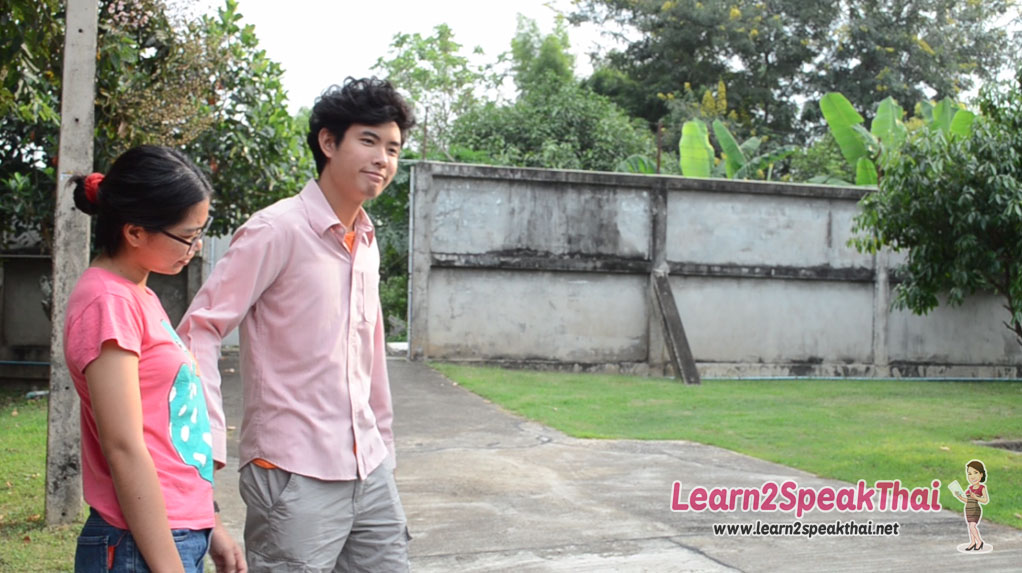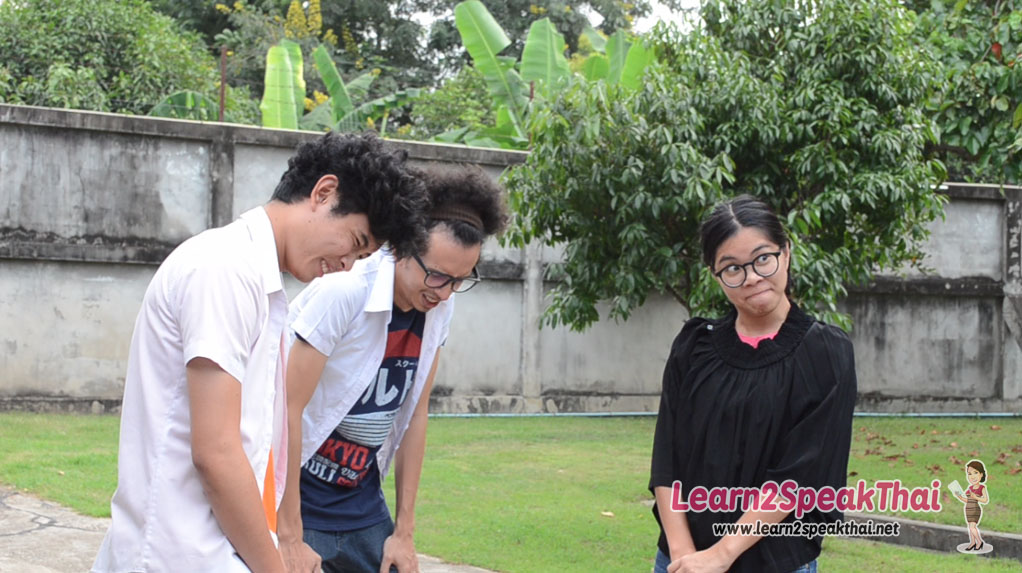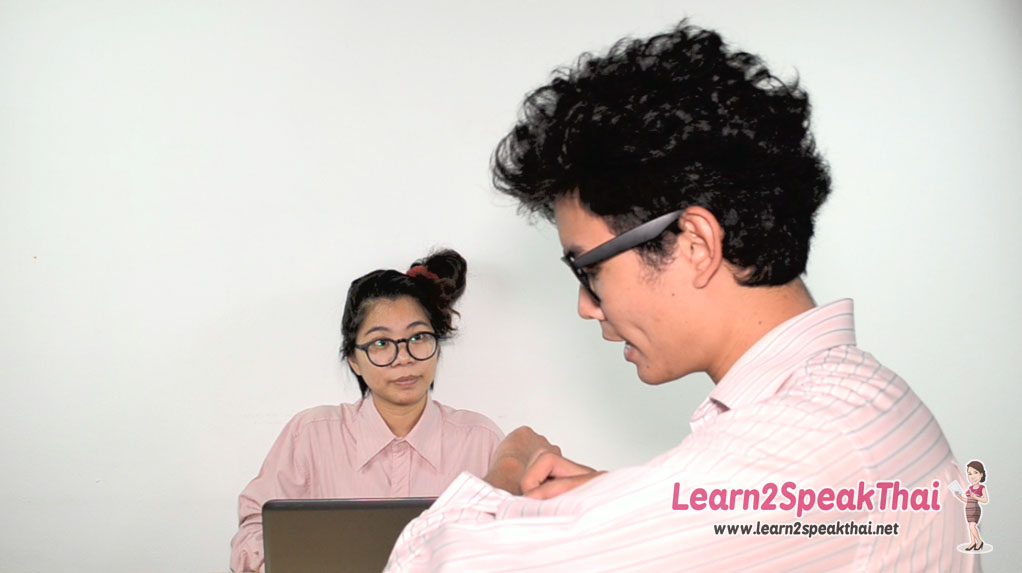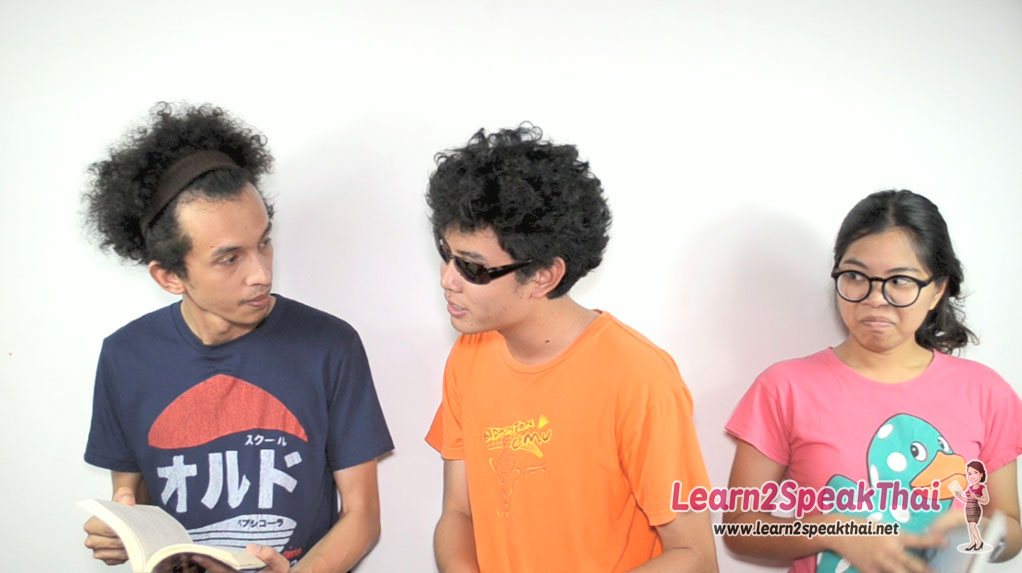
Welcome back to 2 episode of Thai personal pronouns. On the last episode, we talked about Thai personal pronouns as the meaning of “I/me”. And now we will talk about the personal pronouns which mean “YOU” in Thai language.
Second personal pronoun for polite situation
คุณ/kun
“คุณ/kun” means “YOU” is used to address the person you talk to by both men and women and can be used in a polite situation. And as a 2nd or the 3rd person pronouns, name or nickname also can be leaded by the word “คุณ/kun”
Example sentences

คุณว่างมั้ยครับ?
kun wâang mái krúb ?
Do you have free time?
ว่างค่ะ
wâang kà
Yes, I do.
คุณสมชายมีอะไรให้ช่วยมั้ยคะ?
kun sǒm-chai mee à-rai hâi châuy mái ká?
Mr. Somchai, how may I help you?
ผมอยากไปกินข้าวกับคุณ
pǒm yàak bpai gin kâao gùb kun.
I would like to go to dine with you.
Vocabulary
ว่าง /wâang / free, available
ช่วย/ châuy/ to help
คุณ+สมชาย/kun+Somchai/polite way to address a person name Somchai
กินข้าว – Gin khao – to have meal
Although, the word “กินข้าว/gin kâao” means “eat rice” but the meaning is to have meal not only to have rice.
Learn how to use มั้ย/mái as a question word in Thai
Second personal pronoun for same age
เธอ/ter
“เธอ/ter” means “YOU”, it’s for informal conversation only. It is usually used with people of the same age or by the older speaker.
Example sentences

เธอกำลังทำอะไร?
ter gam-lang taam à-rai?
What are you doing?
ฉันกำลังคิดถึงแฟน
chǎn gam-lang kíd thěung fan
I’m thinking of my boyfriend.
Vocabulary
กำลัง /gam-lang/ in the duration of acting, doing something.
คิดถึง/ kíd thěung /thinking of
Learn how to use อะไร/ à-rai as a question word in Thai
Second personal pronoun for young children
หนู/nǒo
“หนู/nǒo” means “YOU”, it can be used as the 1st and also the 2nd person pronoun BUT it is mostly used for/with young children when they talking to adult or women or girls to their supervisors.
Example sentences

หนูจะไปที่ไหนครับ?
nǒo jà bpai tîi nǎi krúb?
Where are you going to?
หนูจะข้ามถนนค่ะ
nǒo jà kâam tà-nǒn kà
I going to cross the street.
ไปส่งหนูได้มั้ยคะ?
bpai sòng nǒo dâi mái ká?
Can you take me there?
Vocabulary
ข้ามถนน / kâam tà-nǒn/ to cross the street
ไปส่ง/bpai sòng /to take to somewhere
Learn how to use ที่ไหน/tîi nǎi question word in Thai
Second personal pronoun address younger people
เรา/ rao
“เรา/rao” means “YOU” is used to address younger people, men and women and for both singular or plural. It implies some sense of superiority in the speaker.
Example sentences

ทำไมเรามาช้า
taam mai rao maa cháa?
Why you are late?
ขอโทษครับ รถติดมากครับ
kǒr-tôd kráb rót dtìd mâak kráb
Sorry ! the traffic is very bad.
ขอโทษครับ ขอโทษครับ
kǒr-tôd kráb kǒr-tôd kráb
I’m sorry, I’m sorry
เราก็มาช้า
rao gôr maa cháa
You are also late.
Vocabulary
ทำไม /taam mai /why
มาช้า/maa cháa/being late
รถติด/ rót dtìd /traffic jam
Listen to a podcast about how to say sorry and Thank you in Thai
Second personal pronoun using name or nickname
In Thai you may call people whom you addressing by their nicknames or by names when you are close to or know them well. But you have to be either older or at least the same age to call the people by their names. However, again in the family, the older members of a family will address the younger one by their nicknames too.
Last episode, we learn about Thai nickname in detail, if you’ve missed it please check it out
Example sentences

เมย์น่ารักอ่ะ
May nâa rák aà
You are cute.
จริงเหรอ?
jing rěu ?
really?
ฟูชอบเมย์นะ
Fuu chôb May ná
I like you
Vocabulary
น่ารัก/nâa rák / cute, pretty
จริงเหรอ?/ jing reu?/ really?
Second personal pronoun for highly respected people
ท่าน/thân
ท่าน/thân is a 2nd person pronoun. It is used when you talk to highly respected people such as monk, royal family members, court judges, Prime Minister, minister or director of the organization.
Example sentences

ท่านจะไปไหนคะ?
thân jà bpai nǎi ká?
Where are you going, sir?
จะไปธนาคาร
ja bpai tá-na-kaan
I am going to the bank.
Vocabulary
ธนาคาร/tá-na-kaan/bank
Second personal pronoun for close friend
แก /gae
As a 2nd person intimate pronoun Thais use the word แก/gae for addressing their close friends, siblings or cousins either male or female. It may sound impolite with people. So, please use this word only among your close friends.
Example sentences

แกทำการบ้านรึยัง
gae taam gan-bâan réu yang?
have you done the homework?
ยัง แกละ
yang gae là?
Not yet, what about you?
Vocabulary
การบ้าน/gan-bâan/homework
รึยัง/réu yang/ or not yet?
To answer รึยัง/réu yang question
-if your answer is “YES”
Use the verb of the question+แล้ว/láew
-if your answer is “No”
ยัง/yang
Impolite/cursing second personal pronoun

มึง/meung
It’s the old way of addressing people. At the present time they are considered very impolite. But as I told you in the 1st episode of Thai first personal pronoun. These kinds of words in Thai are still being used among close friends when they talk to each other and also said by the elderly people in the family to the younger family’s members. And of course, as you are a foreigner it’s better if you don’t use these words.
Example sentence
มึงอ่านอะไร
meung aàn rai aà?
What are you reading?
กูอ่านการ์ตูน
goo aàn ga-toon?
I am reading a cartoon book.
Now, it’s your turn to answer my question
what are the personal pronoun I’m not recommend you to use from previous episode and this episode?
Any other question is also welcome…


As a ฝรั่ง I should not use กู ( I/me) or มึง / เเก ( you). Anyways, have to learn a lot before using something different from ผม and คุณ
Daniel,
ถูกต้องค่ะ it’s collect.
Daniel beat me to the answer, so I’ll just say thanks for these videos. They’re helping a lot!
hi my name is yoram and i came from israel, i’m have been in thailand on and off for the last 18 years. my level is advanced. do you have lesenes for guys like me? i will appreciate. thank’s
Hi Yoram,
We offer lessons from beginner to advance and super advance level
I will email you more information.
Sawatdee krap Kru Mia! The personal pronouns that are not recommended to speak for us foreigners are meung, koo lae kae.
Hi Jeremiah,
Your answers are correct ! I Thai we say
ถูกต้อง tòok dtông [to be] correct ; right ; accurate
hi
how much will cost me to translate 235 page from thai to english?.
i will be happy if you can talk to me on the phone: 972+545274769
thank’s a lot.
I send the rely to you at yoram99@012.net.il, is that your email?
I thought เรา mean “we” or sometimes “I”. Can you explain it to me?
เรา has 2 meanings :
1. “I” used when speaking with same age friends.
2. “we”
but in this article said เรา mean you
when does this use ,เธอ